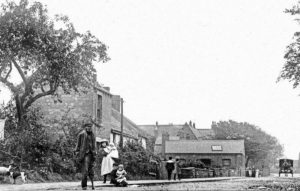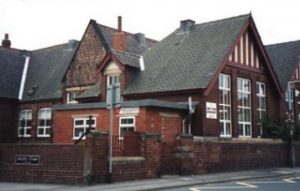History Intent, Implementation and Impact
Intent
Crofton Infants’ School’s history curriculum progressively covers the key knowledge, skills and concepts required in the National Curriculum. We aim to develop historical skills and concepts which are transferable to whatever period of history is being studied and will equip children for future learning.
Our history curriculum is specifically designed to ensure that children build on their knowledge as they move through school, allowing and providing them with opportunities to revisit knowledge before adding to this and being introduced to new learning. Our curriculum focuses on the history of our local community, significant periods of history in Britain and periods of time that have had an impact across the world today.
Children at Crofton Infants’ are encouraged to be curious and follow their own lines of enquiry in history. By the time children leave our school, they will be able to use evidence about the past and select relevant sources of information to address historically valid questions and construct detailed, informed responses. Children at Crofton Infants’ will be encouraged to ask their own questions and seek to find a response to them.
Children at Crofton Infants are always respectful when learning about different people and periods of history. They understand that sometimes, sources of evidence may include the opinions of others and they learn about these with respect and understanding. By the time children leave Crofton Infants school, they will have the skills required to independently investigate their own lines of enquiry by posing historically valid questions to answer.
Children are given lots of opportunities to work collaboratively to discover about the past. They are encouraged to talk and discuss periods of time and will work together to share their findings. Children at Crofton Infants are encouraged to aspire to know about key figures and key periods of time. By the end of each year, they will be able to answer their key questions and they will retain the knowledge they have acquired throughout the rest of their education. Children at Crofton Infants learn that it is not always easy to find the answer that we are searching for in history, and that we must use various sources of evidence to come to a conclusion. They are resilient learners who will persevere with their historical research. Children are encouraged to be creative and enrichment days and activities are completed to enhance and support our children’s understanding of different historical concepts.
As Historians:
In Early Years: children at an expected level of development will be able to talk about the lives of the people around them and their roles in society. They will know some similarities and differences between things in the past and now, drawing on their experiences and what has been read in class. Children will understand the past through settings, characters and events encountered in books read in class and storytelling. In EYFS children will look at their own lives and the people closest to them. They will be able to describe special events in their lives and be able to use past, present and future forms in conversation. Books and stories are used to introduce history topics and act as a stimulus when comparing similarities and differences from the past.
We begin with a study of personal history in EYFS where the children look at stages of life. They focus on changes in their own lives in order to develop an understanding of the structure of human life. They also look at their immediate family. We further the children’s understanding by looking at how childhood has changed, comparing our childhood to that of our parents, grandparents and in year 1 before looking at the history of our village in year 2. In EYFS children will look at their own lives and the people closest to them.
In Key Stage 1: children will be taught in line with the National Curriculum. Children will explore changes within living memory, which are used to reveal aspects of change in national life. Events beyond living memory that are significant nationally or globally. Children will also have the opportunity to learn about the lives of significant individuals who have contributed to national and international achievements. Children will also learn about significant historical events, people and places in their own locality.
In addition to the discrete teaching of history, opportunities are taken to link historical skills and knowledge to other subjects throughout the year, ensuring that children understand that these skills are transferrable and so that they are continually accessing historical concepts. For example, local and national events are taught and referred to in an historical context so that children are continually developing a sense of past and the impact of people and events has on our lives today. These concepts are discussed in day to day discussions, assemblies and even accessed through our classroom ‘News’ boards, where children can stay up to date with what is happening, locally, nationally and worldwide.
Local History & National History—Including significant individuals and events beyond and within living memory
At Crofton Infants school we are passionate in providing a curriculum that is broad, relevant, interesting, creative and appropriate for our children. With this belief we take the time to learn about the history of our own children and their local community. In year 1 children learn all about the English monarchy starting with the late Queen Elizabeth II. Children then use their previously learnt skills and knowledge to study the life of Queen Victoria and the Victorian period in detail. At Crofton Infants School we believe it is important to learn about significant individuals that are relevant to our local area. In year 2 children learn all about Nellie Spindler (Born—Wakefield1891-1917). Nellie Spindler was a nurse killed during the Battle of Passchendaele. She is one of only two British female casualties of WW1 buried in Belgium.
Crofton Infants School / High Street
Then

Now

British History
When studying British history, our intention is that the children leave Crofton with an understanding of how significant individuals and events have impacted on their lives today. The children begin by accumulating an understanding of our current monarchy so that they are able to compare this and make links between other time periods. Some time periods are repeated to ensure that the children are able to deepen and build on knowledge.
World History
In KS1 children have the opportunity to study significant individuals from around the world who have impacted our lives. The children will begin to understand how some events occur concurrently in different locations and can be interconnected and in the same way local and world history can share the same relevancy. For example, in Year 2 children study the Great British naturalist and explorer, Charles who is perhaps best known as a pioneering conservationist. Charles Waterton is particularly relevant for our children at Crofton to study because he was born very locally in the neighbouring village at Walton Hall, now known as ‘Waterton Park Hotel’.
As Crofton Infants’ School is situated in a community whereby the ethnicity is predominantly white British, we feel that it is important to ensure our children are also introduced to history relating to other ethnicities. In year 2 children have an additional topic on black history where they study the life and achievements of British-Jamaican nurse and business woman: Mary Seacole.
We also ensure that there are key themes that run through our curriculum at Crofton Infants, linking year group to year group from EYFS to Year 2.
Implementation
In order for children to know more and remember more in each area of history studied, there is a structure to the sequence whereby prior learning is always considered and opportunities for revision of facts and historical understanding are built into lessons. It allows for this revision to become part of good practice and ultimately helps build a depth to children’s historical understanding. Through revisiting and consolidating skills, we allow children to build on prior knowledge alongside introducing new skills and challenge. The continuous revision and introduction of key vocabulary is built into the sequence of lessons and within these lessons the vocabulary is always accessible.
From EYFS to year 2 Children are continuously familiarised with the notion that history is defined as the passing of time and is studied through the documentation of the past. Each class has a relevant timeline that are displayed in classrooms which enables children to sequence prior knowledge in relation to new knowledge. At the start of a unit of learning, children are encouraged to discuss their prior knowledge in order for them to draw links between what they already know and new learning. This gives our teachers time to assess any gaps in knowledge. As teachers are aware of the historical knowledge being taught in each year group, they are able to plan sessions that build on what the children already know, effectively questioning them on their prior learning.
All children are presented with a key question and they work towards answering this during each of their sessions. Pictorial cues on their knowledge organisers are used to help the children remember the knowledge they obtain in the sessions. Work is displayed alongside key vocabulary in the classroom.
Visitors, whole school events and trips are planned to ensure that knowledge is enriched and deepened but most importantly, given context. Crofton Infants’ School reacts to the most current and present events that take place and that will ultimately become significant in history. This ensures that our children can fully immerse themselves in these experiences.
Through lessons, staff at Crofton Infants’ school inspire our children to develop a love for history and a curiosity to explore how it has shaped the world they live in.
Impact
The impact of using a timeline in every classroom ensures that the learning environment across our school is consistent and children will be familiar with the passing of time. Historical technical vocabulary is displayed, spoken and used by all
Impact is measured through the use of pre and post assessments at the start and end of a unit as well as through an end of term test that assesses the knowledge that has been retained. The picture clues on class timelines are used to help the children remember the knowledge they have acquired about different areas of history. The children are presented with their key question and are able to answer it drawing on the knowledge that the have been taught. Impact is also measured though discussion with the children at regular intervals throughout the year and through discreet questioning by the staff during lesson time.
Our most recent staff and pupil voice audits showcase that history is enjoyed by children and adults across school. Children leave Crofton Infants’ School wanting to continue to build on this wealth of historical knowledge and understanding.
